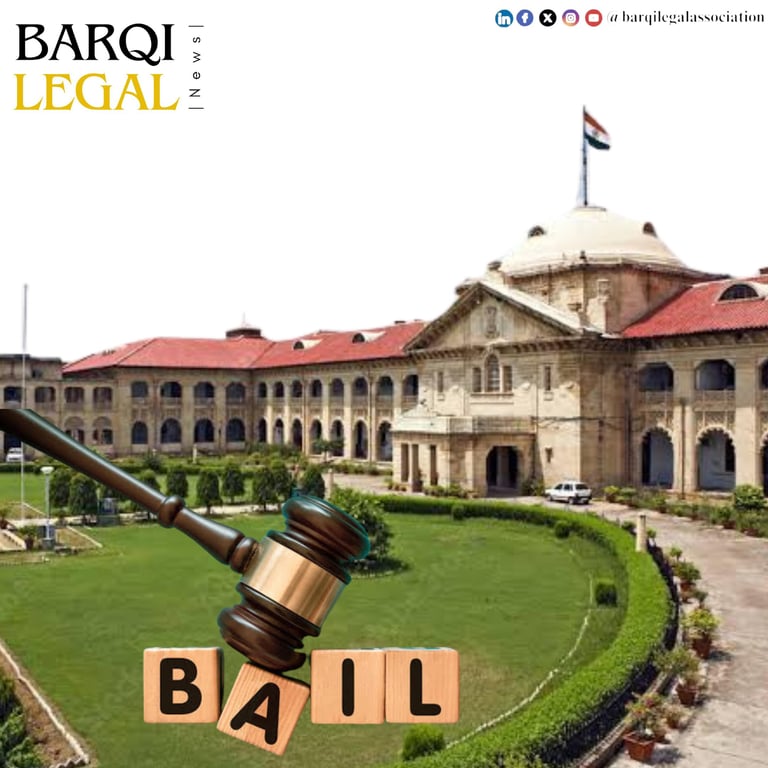Allahabad High Court Warns Against Arbitrary Bail Conditions That Stall Release of Poor Persons from Jail
The Allahabad High Court recently emphasized the responsibility of trial courts to consider the socio-economic status of accused individuals when setting surety amounts for bail. In the case of Arman v. State of U.P., the Court directed trial courts to ensure that bail orders are not frustrated by imposing arbitrary surety conditions that poor or marginalized individuals cannot meet. Justice Ajay Bhanot, who presided over the case, reiterated that courts must apply their minds to the socio-economic situation of the accused when determining sureties. He noted that many individuals from financially weak backgrounds struggle to comply with such bail conditions, which ultimately undermines their right to bail.
NEWS
9/8/20242 min read


The Court called attention to the fact that arbitrary and mechanical imposition of sureties can prevent people from marginalized sections of society from securing their release. Justice Bhanot referred to previous legal precedents, including the case of Arvind Singh v. State of U.P., in which guidelines were issued to trial courts to avoid setting bail conditions in a mechanical or unreasonable manner. He emphasized that bail rights should not be defeated by arbitrary surety demands, and courts should carefully assess the financial condition of the accused.
This case involved a man who had been in jail since September 2020 and sought bail after a trial court rejected his plea. Although the man had been granted bail in other cases, he remained in jail due to his inability to provide the required sureties. Upon reviewing the case, the High Court granted him bail, noting that the accused was not a flight risk and had cooperated with the investigation and trial. The Court's ruling also urged trial courts to ensure that bail is not hindered by unreasonable surety demands that fail to consider the socio-economic realities of the accused.
The Agra District Legal Services Authority (DLSA) was directed to assist the applicant in completing the necessary formalities for his release, including providing legal aid to help with furnishing sureties. The Court expressed concern that earlier directives, such as those issued in the Arvind Singh case, had not been fully followed by trial courts or legal authorities in this case.
The Court highlighted the applicant's financial destitution and noted that he had not approached the High Court earlier because he lacked legal aid and resources. In response, the Court instructed the District Judge of Agra to investigate the issues raised and submit a report to the Secretary of the High Court Legal Services Committee.
Additionally, a copy of the order was sent to the Judicial Training and Research Institute in Lucknow to ensure that trial court judges are sensitized to these issues. Advocate Brijesh Kumar Pal represented the bail applicant, while Advocate Ali Jamal Khan assisted the Court as amicus curiae. The State of Uttar Pradesh was represented by Additional Government Advocate Paritosh Kumar Malviya.
